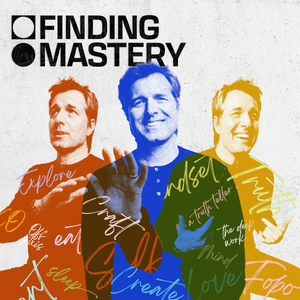
Physiotherapy within the army with Christopher Boyer
05/16/25 • 51 min
The subject of this episode is about working in an environment within the military and generally thoughts about working with very active people.
My guest is Maj. Christopher W. Boyer, PT, DPT, U.S. Army.
There are huge physical and mental demands and medical discharge are a large burden because a lot of money is spent on the individual. I remember working with an Australian from the special forces who said that 40% of those being discharged were due to medical discharge.
On large scale addressing MSK is not just a health concern; it’s a critical factor in maintaining our national defense capabilities. This means that being able to keep staff ready has larger implications than just the individual and their ambitions.
Chris and I cover some of the following themes;
Working with peers and demanding contexts.
Which demands and competencies does it require .
Does being in that positionrequire special training and competencies besides Mechanical Diagnosis & Therapy, MDT.
Which options for referral to such as imaging, blodtests etc etc
How are the demands to get people ready for service again after injury I have the idea that ́s its very similar to professional sports?
How to deal with longstanding injuries / pain when your workplace and the people in your unit are depending on you ? This includes also on how to help people in those situations where it really takes months to get better.
And much much more GREAT stuff
Keen on more stuff regarding this? read this article by Chris and co-authors
https://www.armyupress.army.mil/Journals/Military-Review/English-Edition-Archives/SO-24/SO-24-Musculoskeletal-Imperative/
Thanks for listening
The subject of this episode is about working in an environment within the military and generally thoughts about working with very active people.
My guest is Maj. Christopher W. Boyer, PT, DPT, U.S. Army.
There are huge physical and mental demands and medical discharge are a large burden because a lot of money is spent on the individual. I remember working with an Australian from the special forces who said that 40% of those being discharged were due to medical discharge.
On large scale addressing MSK is not just a health concern; it’s a critical factor in maintaining our national defense capabilities. This means that being able to keep staff ready has larger implications than just the individual and their ambitions.
Chris and I cover some of the following themes;
Working with peers and demanding contexts.
Which demands and competencies does it require .
Does being in that positionrequire special training and competencies besides Mechanical Diagnosis & Therapy, MDT.
Which options for referral to such as imaging, blodtests etc etc
How are the demands to get people ready for service again after injury I have the idea that ́s its very similar to professional sports?
How to deal with longstanding injuries / pain when your workplace and the people in your unit are depending on you ? This includes also on how to help people in those situations where it really takes months to get better.
And much much more GREAT stuff
Keen on more stuff regarding this? read this article by Chris and co-authors
https://www.armyupress.army.mil/Journals/Military-Review/English-Edition-Archives/SO-24/SO-24-Musculoskeletal-Imperative/
Thanks for listening
Previous Episode

Sportsfysioterapi i elitefodbold med Jonas Petersen og Brian Sørensen
Fysioterapeuten i elitefodbold
Jonas Petersen er til daglig fysioterapeut i FC Nordsjælland og min gæst i denne episode af The FysioAalborg Pod.
Jonas er den perfekte gæst til at tale om hvordan vi hjælper fodboldspilleren når de er i en periode med smerter som gør at de ikke kan deltage på banen.
Fakta fra forskningen om folk der er skadet
Når folk er sat “på sidelinien” ved vi at der er følgende tematikker og måder de forholder sig til situationen på.
- En forstyrrelse der så absolut ikke var en del af planen frygt, tvivl, bekymringer.
- En trussel mod karrieren og den personlige identitet – hvem er jeg så nu og hvordan klarer jeg det økonomisk.
- Bekymring for tilbagefald og oplevelse af isolation.
- En mulighed for at få en pause og udnytte tiden til at blive bedre på nogle parametre så det ender med at blive en fordel.
- Bare en del af det at være atlet på højt niveau og så lad os få det bedste ud af det.
- En time out fra det mentale og fysiske pres.
Jonas og jeg kommer omkring disse ud fra vores og i særdeleshed hans erfaringer.
Strategier og accept
Vi kigger nærmere på hvorledes Jonas i hans position i en større organisation som FCN anvender nogle strategier og handlemønstre til at støtte de atleter som er på ”sidelinien” i kortere og længere tid. Strategier som baserer sig meget på accept.
Som altid tak fordi du lytter med
If you like this episode you’ll love
Episode Comments
Generate a badge
Get a badge for your website that links back to this episode
<a href="https://goodpods.com/podcasts/the-fysioaalborg-pod-436489/physiotherapy-within-the-army-with-christopher-boyer-91394194"> <img src="https://storage.googleapis.com/goodpods-images-bucket/badges/generic-badge-1.svg" alt="listen to physiotherapy within the army with christopher boyer on goodpods" style="width: 225px" /> </a>
Copy




